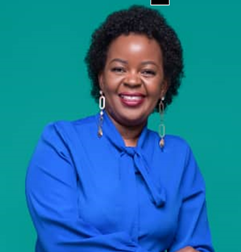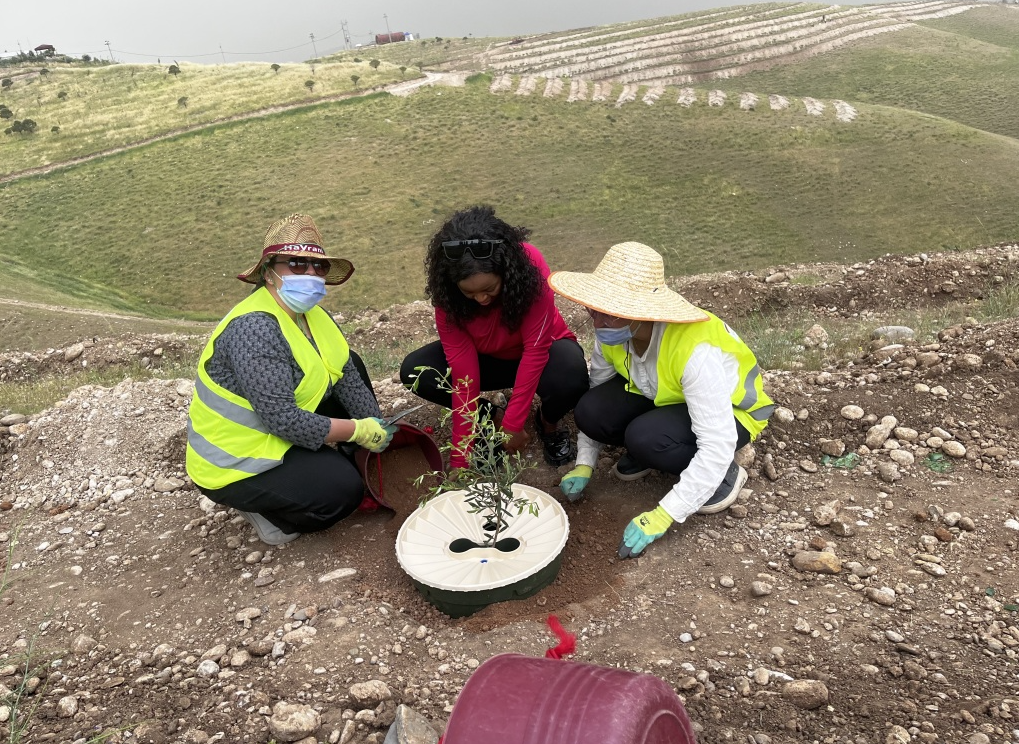September 13, 2025
2024 Alumni CPDP Blog: Prisca Waluza Chisala’s story
The continuation of this blog series will focus on the highlights from the recent Alumni of the 2024 Cash Practitioner Development Programme, allowing practitioners to share what they have learnt and experienced during their Cash School learning deployments.
The Cash Practitioner Development Programme aims to expand the ready pool of cash experts available to deliver humanitarian cash assistance, and to strengthen the community of qualified practitioners with up-to-date skills in all areas of cash assistance. Cash deployments are a key element of participants learning schedules, these deployments aim to enhance skills and confidence in implementing cash based assistance. Some deployments are run in partnership with NORCAP, with practitioners accessing deployment opportunities from a range of humanitarian agencies.
Meet Prisca Waluza Chisala from Our 2024 Cash Practitioner Development Programme!
Prisca is currently working with the IFRC as a regional coordinator, Early Warnings Early Actions for Africa from her previous role as Director of Programmes and Development at the Malawi Red Cross Society, which was her entry point into the CPDP.

What was your experience with cash prior to undertaking the CPDP training program?
I joined the CPDP program when I was serving as the Director of Programmes and Development at the Malawi Red Cross Society (MRCS). In this role, I provided strategic and programmatic leadership across all MRCS interventions, including those utilising cash as a modality to support vulnerable populations. I was directly responsible for overseeing the design, implementation, and monitoring of cash-based interventions, ensuring they aligned with MRCS’s strategic objectives and humanitarian standards. My role also involved engaging with partners and donors to advocate for and scale up the use of cash in both emergency and resilience-building contexts.
What motivated you to pursue the CPDP program and expand your knowledge in cash operations?
I observed a growing interest from donors, partners and affected communities in using cash as a preferred modality for humanitarian assistance. This trend highlighted the need for enhanced technical and operational capacity within MRCS to institutionalise and scale up cash programming. I was motivated to join the CPDP to deepen my expertise, strengthen my ability to provide technical support to MRCS teams, and position myself for regional or global deployments where cash programming expertise is in high demand. I also saw it as an opportunity to contribute more meaningfully to the localisation agenda by building internal capacity within National Societies.
Where did you go during your deployment phase?
I was deployed to Iraq, where I had the opportunity to contribute to ongoing cash programming efforts (including supporting the transitioning of the cash working group into a cash forum) and gain hands-on experience in a complex humanitarian context.

Can you share a particularly memorable or rewarding experience from your time in the CPDP program?
One of the most memorable and rewarding experiences was my deployment in Iraq, where I had the privilege of co-chairing the national Cash Forum (formerly referred to as the Cash Working Group). This was my first time leading such a coordination platform, and it was both a challenging and enriching experience. During one of the monthly coordination sessions, I was invited to present key lessons and recommendations from my deployment, which sparked significant interest among members. Several participants requested a copy of my report, which was a humbling affirmation of the value of my contributions. This experience greatly enhanced my confidence in technical leadership and coordination in cash programming.
What advice would you offer to someone just beginning the CPDP program?
The CPDP is a transformative and enriching journey that equips participants with both theoretical and practical skills in cash programming. My advice would be to approach it with commitment and curiosity. Effective time management, proactive planning, and maintaining regular communication with your mentor are essential to balancing the program with your existing responsibilities. Be open to learning from peers, mentors, and field experiences, and take every opportunity to apply your learning in real-world contexts.
How do you feel your career has progressed since completing the program?
The CPDP program significantly enhanced my technical and operational capacity in cash programming. I now feel more confident in designing, coordinating, and evaluating cash-based interventions. It has also positioned me as a resource person within the Movement, capable of mentoring and coaching colleagues in National Societies. The program broadened my professional network and opened up new opportunities for regional and global deployments, further enriching my career trajectory.
What trends or developments do you anticipate in the future of cash?
I foresee a continued expansion in the use of cash across both humanitarian and development programming. Cash offers numerous benefits, including preserving the dignity of recipients, offering them choice, and stimulating local markets. With advancements in digital technology and financial inclusion, I anticipate more integrated and scalable cash systems that are responsive to both rapid-onset emergencies and long-term resilience needs. There will also likely be increased emphasis on linking cash with social protection systems and anticipatory action frameworks.
Is there anything else you’d like to share about your CPDP journey?
The CPDP journey was not only a professional development opportunity but also a powerful platform for networking and peer learning. I gained invaluable insights from fellow participants, mentors, and alumni, which enriched my understanding of diverse cash programming contexts. The collaborative spirit and shared commitment to improving humanitarian outcomes through cash made the experience deeply fulfilling.
